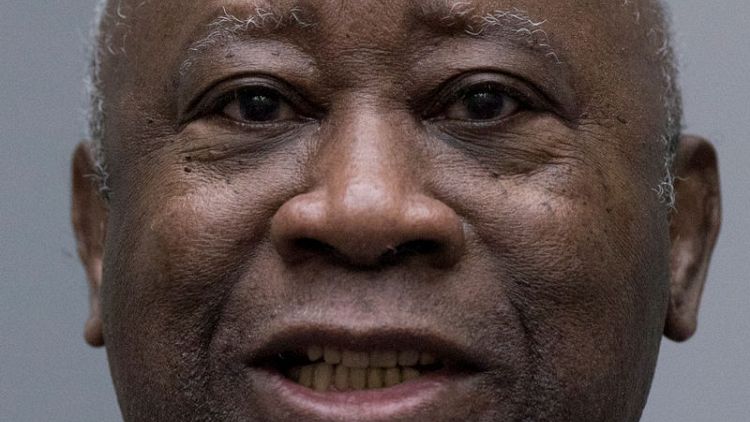By Stephanie van den Berg and Toby Sterling
THE HAGUE (Reuters) - Former Ivory Coast president Laurent Gbagbo was freed from detention by the International Criminal Court on Friday.
Reading a unanimous decision by a five-judge appeals panel, presiding judge Chile Eboe-Osuji ordered Gbagbo and co-defendant Charles Blé Goudé "to be released to a state willing to accept them on its territories".
The men were acquitted of atrocities charges on Jan. 15 but had been kept in detention pending objections by prosecutors, who plan to appeal against the acquittal and sought guarantees that the men would return to court later if required.
The panel said it would publish fuller details of the conditions imposed later on Friday. It said they were needed to "protect the integrity of the process" and directed the court's registry to "identify and enter into arrangements with States willing to accept Mr Gbagbo and/or Mr Blé Goudé on their territories and enforce the conditions".
The need to make arrangements meant the timing of the men's release was unclear, but it was likely to be within hours.
Gbagbo's family have said he would ultimately like to return to Ivory Coast but indicated he may first go to Belgium, where he has relatives. Blé Goudé's intentions are not known.
Gbagbo's potential return to his homeland is complicated by the fact that he was handed a 20-year sentence there for embezzlement, after a trial in absentia, in January 2018.
Gbagbo, who ruled Ivory Coast from 2000-2011, has spent seven years in custody in The Hague.
Judges at the trial said the prosecution case linking Gbagbo to election-related violence in 2010 and 2011, in which some 3,000 people were killed, was "exceptionally weak" and that it was unlikely the acquittals would be overturned.
But the appeals chamber was willing to hear prosecution arguments that Gbagbo might not return for future court hearings if he were set free.
Gbagbo's acquittal was criticised by groups representing those who died in violence during the 2010 election, in which Gbagbo refused to concede defeat to his rival, Alassane Ouattara.
Hundreds of thousands fled the unrest that prosecutors blamed on Gbagbo, and victims fear his return home could revive hostilities in Ivory Coast.
(Reporting by Stephanie van den Berg and Toby Sterling; Editing by Kevin Liffey)
